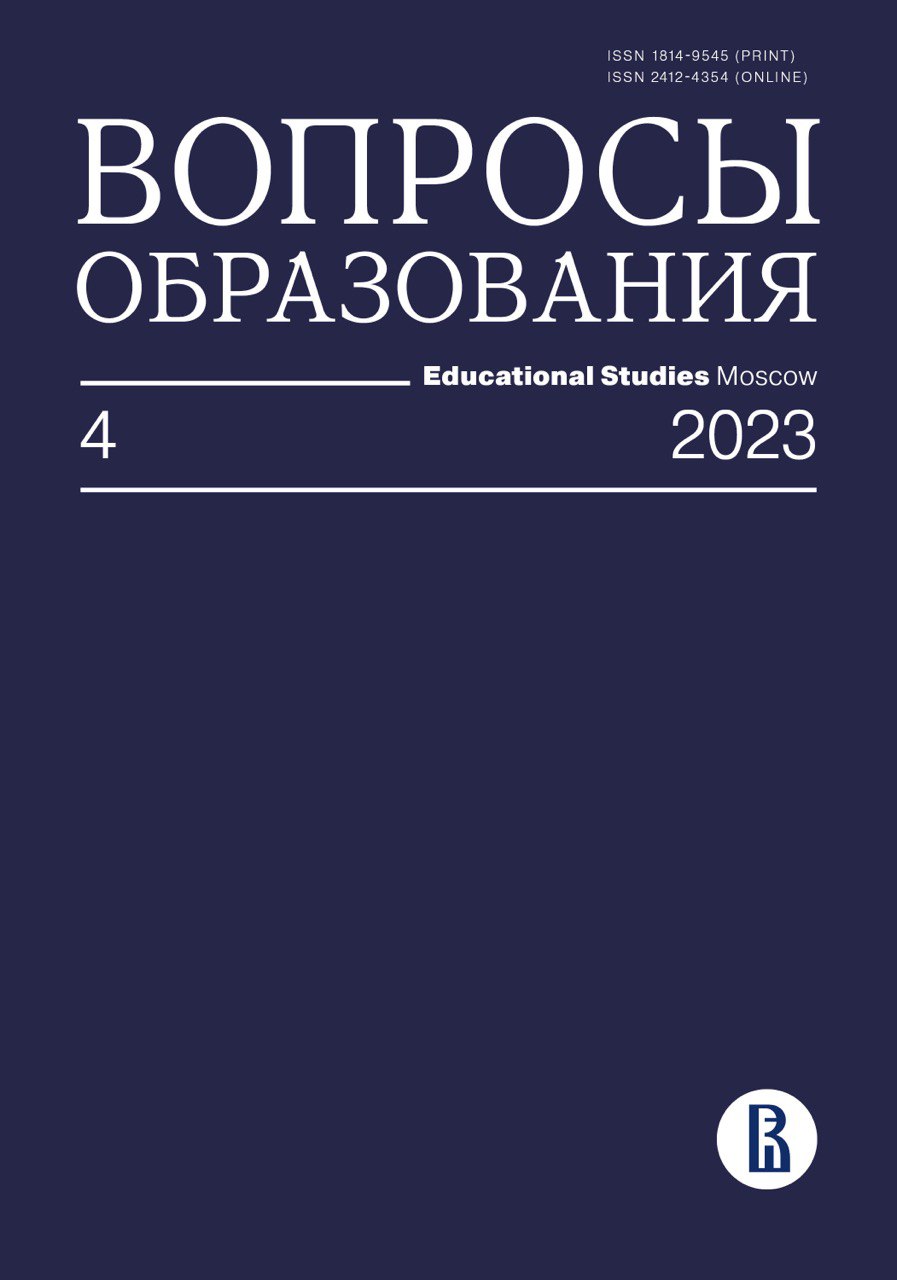Игра на повышение: роль виртуальной валюты в стимулировании выполнения домашних заданий на платформе Skyeng
Аннотация
Платформы онлайн-обучения, которые стали в последние годы средством получения новых знаний и навыков для миллионов людей, испытывают серьезные проблемы с отсевом учащихся, а также с мотивированием их к выполнению заданий во время обучения. Одним из эффективных способов повышения вовлеченности учащихся является геймификация в обучении. Проведено исследование с целью оценить связь такого элемента геймификации, как виртуальная валюта, с результатами изучения английского языка на платформе Skyeng.
Проанализирована связь среднего балла за выполнение домашних заданий и доли выполненных домашних заданий у пользователей Skyeng с предоставлением им возможности зарабатывать и использовать виртуальную валюту. В результате эксперимента, проведенного в формате A/B тестирования, обнаружен значимый эффект введения виртуальной валюты для образовательных показателей учащихся. Так, у членов экспериментальной группы выросла вовлеченность в выполнение домашних заданий на платформе по сравнению с контрольной группой. При этом вовлеченности учащихся способствуют разные типы вознаграждений, в том числе те, которые не связаны напрямую с учебой. Члены экспериментальной группы, не воспользовавшиеся доступной им игровой валютой, показали результаты, схожие с контрольной группой, и даже ниже. Авторы предполагают, что в данном случае имеет место эффект мотивации студентов как скрытого фактора, что объясняет возрастание интереса как к функционалу и возможностям самой платформы, так и к образовательному процессу в целом.
Скачивания
Литература
Antonaci A., Klemke R., Specht M. (2019) The Effects of Gamification in Online Learning Environments: A Systematic Literature Review. Informatics, vol. 6, no 3, Article no 32. https://doi.org/10.3390/informatics6030032
Baptista G., Oliveira T. (2019) Gamification and Serious Games: A Literature Meta-Analysis and Integrative Model. Computers in Human Behavior, vol. 92, March, pp. 306–315. https://doi.org/10.1016/j.chb.2018.11.030
De-Marcos L., Garcia-Lopez E., Garcia-Cabot A. (2016) On the Effectiveness of Game-Like and Social Approaches in Learning: Comparing Educational Gaming, Gamification & Social Networking. Computers & Education, vol. 95, April, pp. 99–113. https://doi.org/10.1016/j.compedu.2015.12.008
Dichev C., Dicheva D., Irwin K. (2020) Gamifying Learning for Learners. International Journal of Educational Technology in Higher Education, vol. 17, Article no 54. https://doi.org/10.1186/s41239-020-00231-0
Dicheva D., Guy B., Yorgov V., Dichev C., Irwin K., Mickle C. (2021a) A Study of Using Virtual Currency in a Discrete Mathematics Course. Proceedings of the 2021 IEEE Global Engineering Education Conference (Vienna, Austria, 2021, April, 21), pp. 567–576. https://doi.org/10.1109/EDUCON46332.2021.9453893
Dicheva D., Hsin W.J., Dichev C., Guy B., Cassel L., Irwin K. (2021b) Exploring the Effect of Virtual Currency on Learners Engagement. Proceedings of the 2021 International Conference on Advanced Learning Technologies (online, 2021, July, 12), pp. 83–87. https://doi.org/10.1109/ICALT52272.2021.00033
Dokuka S., Kapuza A., Sverdlov M., Yalov T. (2022) Women in Gig Economy Work Less in the Evenings. Scientific Reports, vol. 12, no 1, pp. 1–11. https://doi.org/10.1038/s41598-022-12558-x
Grant S., Betts B. (2013) Encouraging User Behaviour with Achievements: An Empirical Study. Proceeding of the 10th Working Conference on Mining Software Repositories (San Francisco, CA, 2013, May 18–19), pp. 65–68. https://doi.org/10.1109/MSR.2013.6624007
Gené O.B., Núñez M.M., Blanco Á.F. (2014) Gamification in MOOC: Challenges, Opportunities and Proposals for Advancing MOOC Model. Proceedings of the Second International Conference on Technological Ecosystems for Enhancing Multiculturality (Salamanca, Spain, 2014, October 1–3), pp. 215–220. http://dx.doi.org/10.1145/2669711.2669902
Hakulinen L., Auvinen T., Korhonen A. (2015) The Effect of Achievement Badges on Students' Behavior: An Empirical Study in a University-Level Computer Science Course. International Journal of Emerging Technologies in Learning, vol. 10, no 1, pp. 18–29. https://doi.org/10.3991/ijet.v10i1.4221
Hamari J., Koivisto J., Sarsa H. (2014) Does Gamification Work? A Literature Review of Empirical Studies on Gamification. Proceedings of the 47th Hawaii International Conference on System Sciences (Waikoloa, HI, 2014, January, 06–09), pp. 3025–3034. https://doi.org/10.1109/HICSS.2014.377
Kim S. (2013) Effects of the Gamified Class in Engineering Education Environments. Journal of Convergence Information Technology, vol. 8, no 13, pp. 253–260.
Kizilcec R.F., Pérez-Sanagustín M., Maldonado J.J. (2017) Self-Regulated Learning Strategies Predict Learner Behavior and Goal Attainment in Massive Open Online Courses. Computers & Education, vol. 104, January, pp. 18–33. https://doi.org/10.1016/j.compedu.2016.10.001
Kohavi R., Longbotham R. (2015) Online Controlled Experiments and A/B tests. Encyclopedia of Machine Learning and Data Mining (eds C. Sammut, G.I. Webb), Boston: Springer, pp. 922–929. https://doi.org/10.1007/978-1-4899-7687-1_891
Oudeweetering van de K., Agirdag O. (2018) MOOCS as Accelerators of Social Mobility? A Systematic Review. Journal of Educational Technology & Society, vol. 21, no 1, pp. 1–11. http://www.jstor.org/stable/26273863
Richards C., Thompson C.W., Graham N. (2014) Beyond Designing for Motivation: The Importance of Context in Gamification. Proceedings of the First ACM SIGCHI Annual Symposium on Computer-Human Interaction in Play (Toronto, Canada, 2014, October 19–21), pp. 217–226. https://doi.org/10.1145/2658537.2658683
Sailer M., Homner L. (2020) The Gamification of Learning: A Meta-Analysis. Educational Psychology Review, vol. 32, no 1, pp. 77–112. https://doi.org/10.1007/s10648-019-09498-w
Toda A.M., Valle P.H., Isotani S. (2017) The Dark Side of Gamification: An Overview of Negative Effects of Gamification in Education. Higher Education for All. From Challenges to Novel Technology-Enhanced Solutions. HEFA 2017. Communications in Computer and Information Science, vol. 832 (eds A.Cristea, I. Bittencourt, F. Lima), Cham: Springer International Publishing, pp. 143–156. https://doi.org/10.1007/978-3-319-97934-2_9








